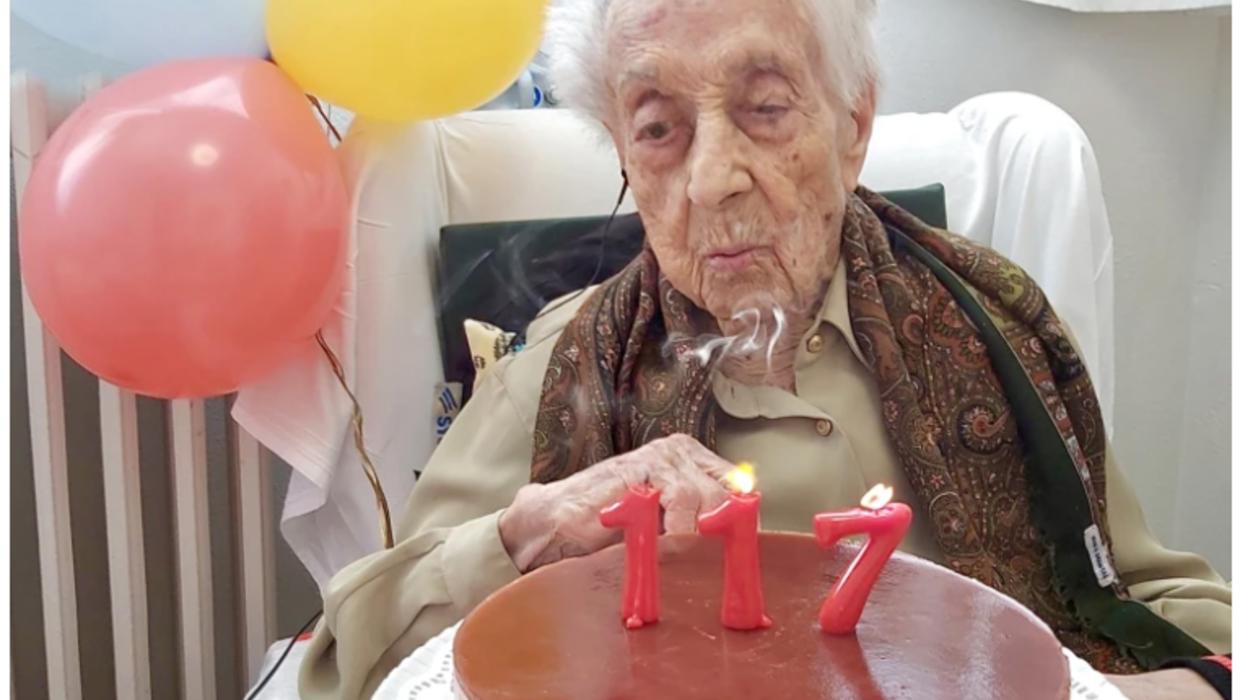Science
Researchers Uncover Secrets Behind Longevity of Maria Branyas Morera

A recent study has shed light on the remarkable longevity of Maria Branyas Morera, the world’s oldest living woman, who celebrated her 117th birthday in March 2024. Researchers have identified several factors that may have contributed to her exceptional lifespan, providing insights that could benefit the broader population.
The study, conducted by a team of scientists from various institutions, focused on Branyas Morera’s lifestyle, genetics, and environmental influences. Born on March 4, 1907, in San Francisco, California, she has spent most of her life in Spain. Her experiences offer a unique perspective on aging and health that researchers hope to explore further.
Key Findings on Longevity
One significant aspect of the research highlights Branyas Morera’s active lifestyle. Even at her advanced age, she maintains a routine that includes regular social interactions and mental activities, which are believed to play a crucial role in cognitive health. The study emphasizes that staying socially engaged can mitigate the risks associated with loneliness and cognitive decline.
Additionally, the researchers noted her family history of longevity. Branyas Morera’s mother lived to be 99, suggesting potential genetic factors at play. The researchers are keen to investigate how genetics might influence aging and the development of age-related diseases.
Nutrition also emerged as a key factor. Throughout her life, Branyas Morera has adhered to a Mediterranean diet, rich in fruits, vegetables, whole grains, and healthy fats. This dietary pattern is widely recognized for its health benefits, including lower risks of heart disease and improved brain health.
The Impact of Environment and Attitude
Branyas Morera’s environment has also contributed to her longevity. She resides in a region known for its mild climate and rich cultural heritage, which can enhance quality of life. Researchers suggest that positive surroundings, including access to nature and community support, may lead to better health outcomes for the elderly.
Moreover, her optimistic outlook on life has been frequently noted. Branyas Morera often expresses gratitude for her experiences and emphasizes the importance of maintaining a positive attitude. This perspective aligns with existing research indicating that a hopeful outlook can improve health and increase longevity.
The study’s findings could have far-reaching implications for public health initiatives aimed at promoting healthy aging. By understanding the factors that contribute to longevity, health professionals may develop strategies to help individuals lead longer, healthier lives.
As the research continues, the team hopes to explore how these insights can be applied on a larger scale, potentially benefiting millions. The journey of Maria Branyas Morera serves as a powerful reminder of the complexities of aging and the various factors that can influence our lifespan.
-

 World3 months ago
World3 months agoTest Your Knowledge: Take the Herald’s Afternoon Quiz Today
-

 Sports3 months ago
Sports3 months agoPM Faces Backlash from Fans During Netball Trophy Ceremony
-

 Lifestyle3 months ago
Lifestyle3 months agoDunedin Designers Win Top Award at Hokonui Fashion Event
-

 Sports3 months ago
Sports3 months agoLiam Lawson Launches New Era for Racing Bulls with Strong Start
-

 Lifestyle3 months ago
Lifestyle3 months agoDisney Fan Reveals Dress Code Tips for Park Visitors
-

 Health3 months ago
Health3 months agoWalking Faster Offers Major Health Benefits for Older Adults
-

 World3 months ago
World3 months agoCoalition Forms to Preserve Māori Wards in Hawke’s Bay
-

 Politics3 months ago
Politics3 months agoScots Rally with Humor and Music to Protest Trump’s Visit
-

 Top Stories3 months ago
Top Stories3 months agoUK and India Finalize Trade Deal to Boost Economic Ties
-

 World3 months ago
World3 months agoHuntly Begins Water Pipe Flushing to Resolve Brown Water Issue
-

 Entertainment3 months ago
Entertainment3 months agoExperience the Excitement of ‘Chief of War’ in Oʻahu
-

 Science3 months ago
Science3 months agoNew Interactive Map Reveals Wairarapa Valley’s Geological Secrets









